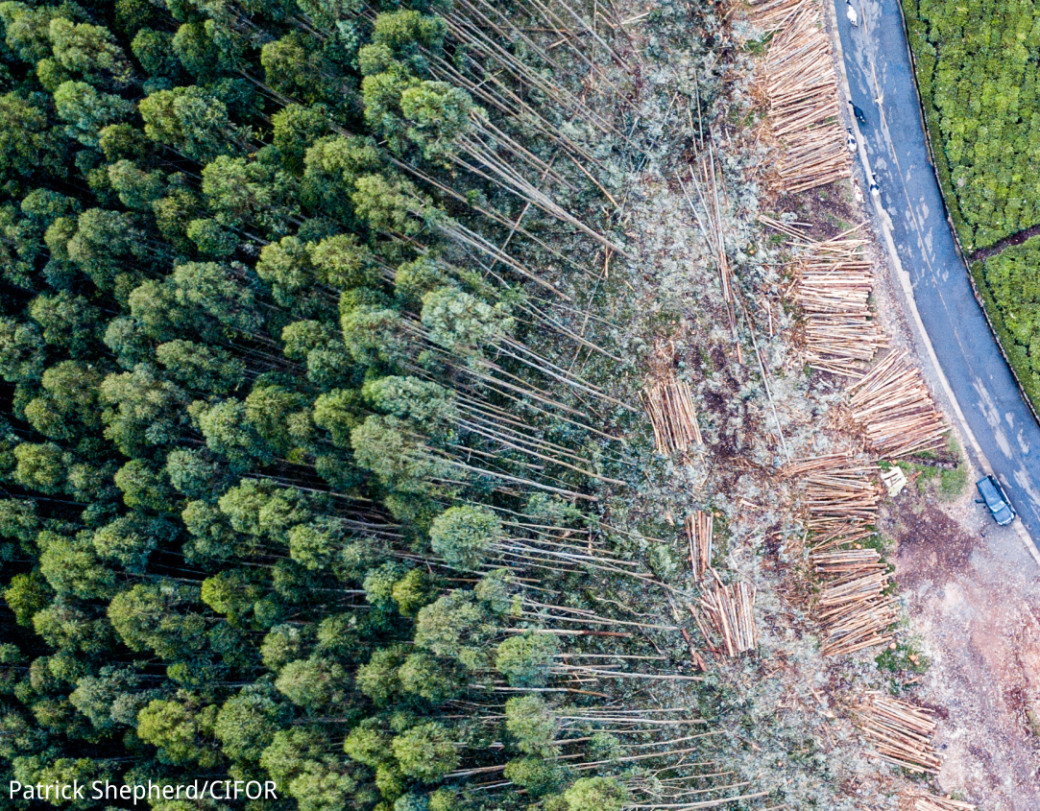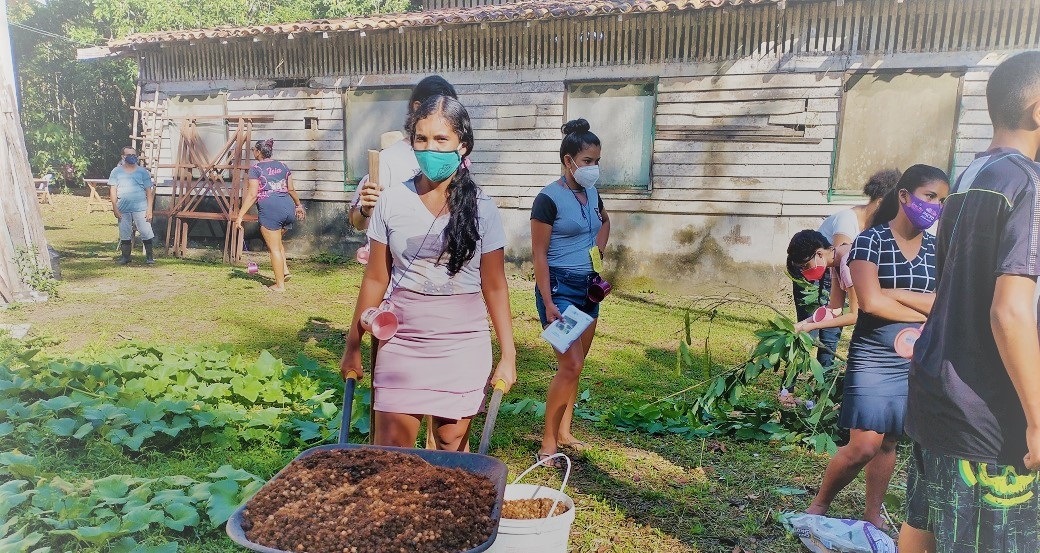Notre nature n’est pas votre solutions – et les plantations de la FAO sont encore moins une solution!

Par Ruth Nyambura, Coalition mondiale des forêts (GFC), Kenya
Le 22 mai de chaque année, on célèbre mondialement la Journée internationale de la Diversité biologique, et les célébrations de cette année sont importantes dans la mesure où les Nations Unions ont déclaré que 2020 serait une «super année» pour la nature et la biodiversité en choisissant pour thème Nos solutions sont dans la Nature. Prenant part aux célébrations, l’Organisation des Nations Unies pour l’alimentation et l’agriculture (FAO) effectuera un lancement virtuel pour divulguer les principales conclusions de son analyse forestière annuelle, intitulée «Rapport de l’État mondial des forêts 2020: les forêts, la biodiversité et la population (SOFO 2020). Les rapports des années précédentes n’avaient pas de quoi se réjouir alors qu’on faisait état de niveau croissant de déforestation, en particulier en Afrique et en Amérique latine. De plus, on y apprenait que l’engagement des Chefs d’État d’en finir avec la déforestation d’ici 2020 ne serait pas respecté, but pourtant avéré des Objectifs de développement durable, ni cette année ni dans un avenir proche. Voilà donc une réalité dévastatrice pour les écosystèmes de la planète et pour ceux et celles qui en dépendent pour assurer leurs moyens de subsistance et préserver leurs pratiques socio-culturelles.
Continuez à lire en anglais…
For a long time, GFC and our allies have strongly criticised FAO as it has allowed for ecologically destructive monoculture tree plantations to be defined as “planted forests”. We consider this a deliberate mislabeling that not only allows the tree plantations industry to tap into badly needed and terribly limited climate funds, but also makes it easier to compensate for deforestation with plantation expansion. In addition to the terrible impacts these “forests” have on biodiversity, the consequences for local communities and Indigenous Peoples who often get evicted from their lands to make way for these plantations need to be constantly highlighted as our own work at GFC is committed to doing. Rather than mitigating against the impacts of climate change, these false solutions continue to be responsible for increased emissions and a myriad of human rights violations across the world.
Before the COVID-19 pandemic several high-level events and review processes had been planned for 2020. These events were expected to radically change the global environmental governance landscape. Chief among these meetings were the five-year review meetings on the SDGs and the Post 2030 Agenda for Sustainable Development, the Convention on Biological Diversity Summit (CBD15) to determine the post 2020 Global Biodiversity Framework in Kunming, China, and the UN Framework Convention on Climate Change Summit (COP26) in Glasgow, Scotland.
These ‘super year’ meetings were expected to promote ‘nature-based solutions’ (NBS) which, according to the UN, “…offer the best way to achieve human well-being, tackle climate change and protect our living planet.” Additionally, CBD15 was framed as the next ‘Paris Agreement Moment’ and another fantastic opportunity for the world to strike a ‘New Deal for Nature’.
While these plans sounded laudable, the problem is that climate, biodiversity, agriculture and forest-related agreements have long served as vehicles for corporations, private foundations and developed countries to legitimize the commodification of nature. In the last decade or so, we have witnessed an aggressive push for “solutions” like NBS that seem more focused on increasing the financial gains of extractive, agro-industrial and polluting corporations than actually dealing with the structural causes of the environmental and health crises we presently face. Most of these “solutions” squarely overlook the rights, needs and livelihoods of the Indigenous Peoples, local communities and women that are actually on the forefront of forest conservation.
It is with this context in mind that GFC has launched the campaign #OurNatureIsNotYourSolution and a special issue of Forest Cover. We aim to spotlight the extent to which nature and biodiversity are being privatized and commodified, and which actors are responsible for it. Importantly, we also aim to amplify the voices and regenerative solutions of the Indigenous People, local communities and women on the frontlines of the biodiversity and climate crisis that we now face.
We’re calling on people across the world, our supporters and allies, the United Nations and those on the frontlines of the climate and biodiversity crisis to actively reject false solutions that turn nature into a business opportunity, and to halt the continuing replacement of natural forests by monoculture tree plantations (as described in the FAO State of the World Forests report). We also urge everyone to commit to supporting regenerative practices, championed by local communities, Indigenous Peoples and women, which continue to be our biggest weapons against the many manifestations of these multiple and intersecting crises.
Our Nature is Not Your Solution!










